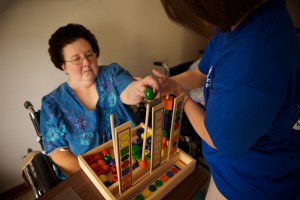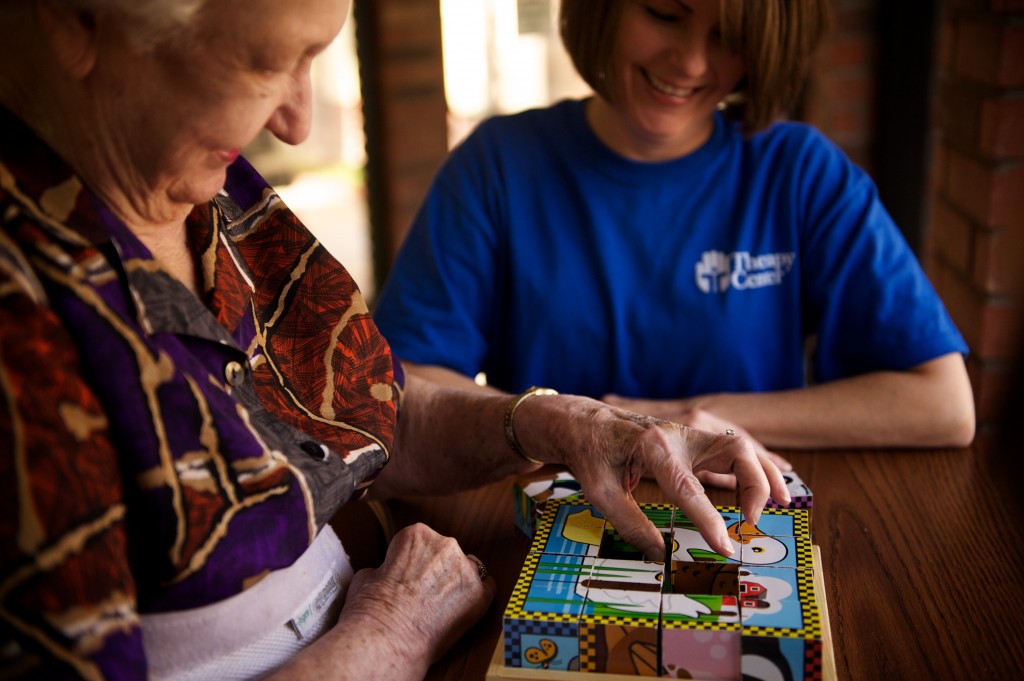During National Occupational Therapy Month, we would like to bring attention to the role of occupational therapists in various settings and tips for managing conditions associated with occupational therapy treatment. With a growing population of individuals needing treatment in their homes, this week, we would like to focus on occupational therapy in a home health setting.
Some individuals have the potential to regain skills affected by their conditions, while others may need strategies to prevent further loss of abilities. Regardless of specific diagnosis or condition, occupational therapy practitioners offer strategies to manage daily activities while reducing the risk of injury or further decline (Goldberg, 2009; Ryan, 2006).
Occupational therapy practitioners can assist in finding the right fit between patients’ abilities, needed and desired activities, and their home environment so patients can manage safely and productively—at home.
Often times, patients must manage various chronic conditions as large part of their daily activities. Occupational therapy brings expertise to help patients translate “doctor’s orders” to manageable daily habits and routines (Bondoc & Siebert, 2010). Occupational therapy can strengthen outcomes related to:
 Medication management: Occupational therapy addresses strategies to enhance medication adherence and integrate medication management into patients’ daily routines.
Medication management: Occupational therapy addresses strategies to enhance medication adherence and integrate medication management into patients’ daily routines.
They also can assist with daily management of conditions such as:
- Diabetes: Occupational therapy addresses the many aspects of diabetes management that must become daily routines: blood sugar monitoring, hygiene and foot care, meal planning and preparation, healthy coping strategies, and physical activity. Occupational therapy practitioners can also train patients with diabetes to use compensatory strategies for vision, sensory, or motor loss that may interfere with their daily activities..
- Heart failure: Occupational therapy addresses strategies to conserve energy and reduce the demands of activities, while integrating appropriate physical activity and self-monitoring. Occupational therapy practitioners can assist patients to master new activities—daily weights, modified diets—and incorporate these activities into regular routines.
- Chronic obstructive pulmonary disease: Occupational therapy addresses strategies to conserve energy, reduce the demands of activities, and self-monitor to avoid exacerbations. Occupational therapy practitioners can assist patients to incorporate pacing, planning, and stress management into daily activities.
- Cognitive and behavioral health conditions: Occupational therapy addresses daily routines, medication adherence, self-management, and stress management strategies. With a core knowledge base in psychosocial issues, occupational therapists can also address behavioral health conditions and train caregivers to provide appropriate cues and support to patients with cognitive limitations to optimize performance and reduce agitation or confusion.
Visit AOTA for more tips such as remaining in your home as you age. For more information on Therapy Center’s home health program, visit our website or contact us at 337-824-4545.

